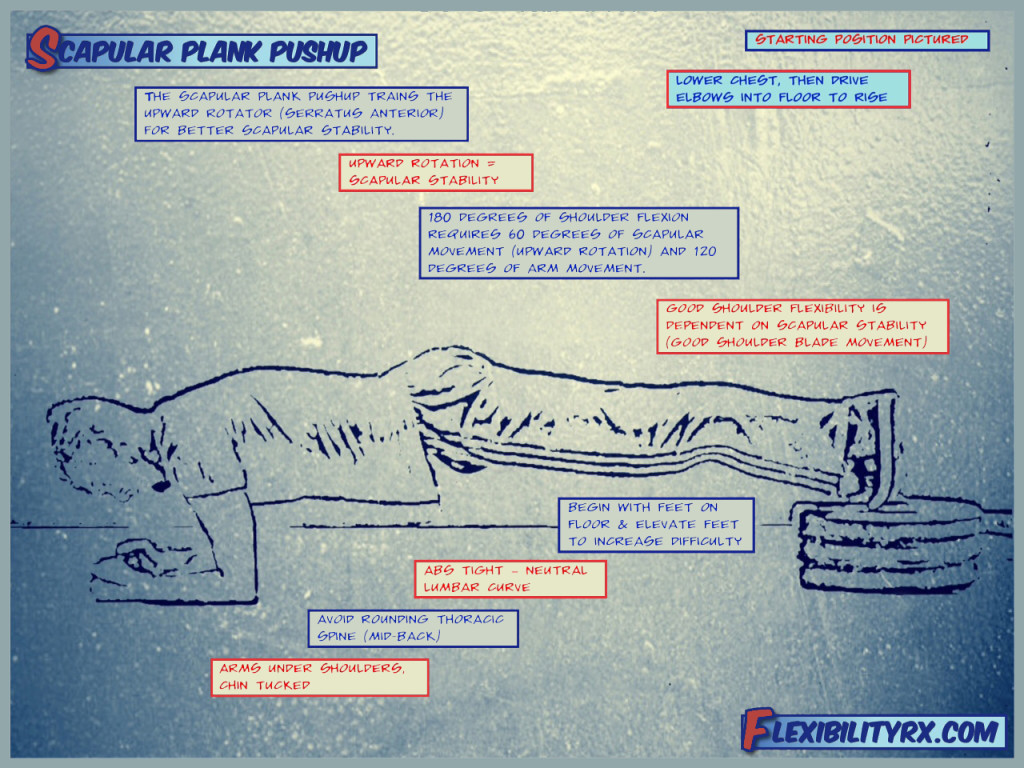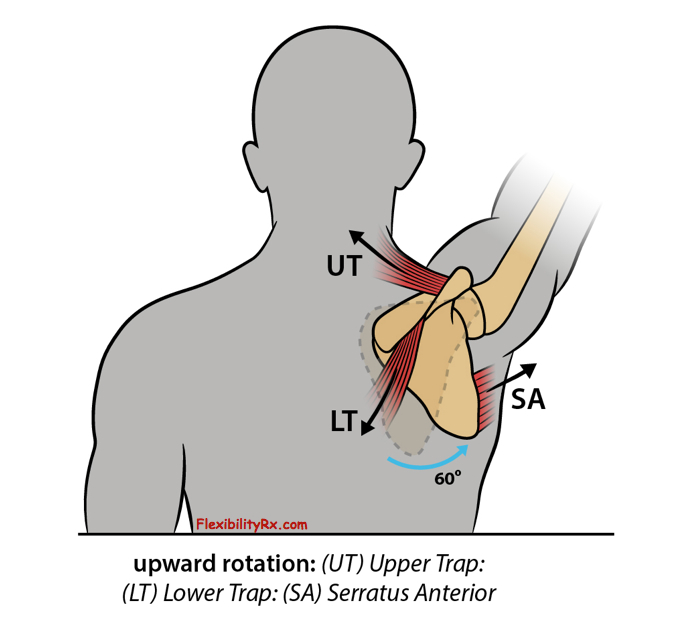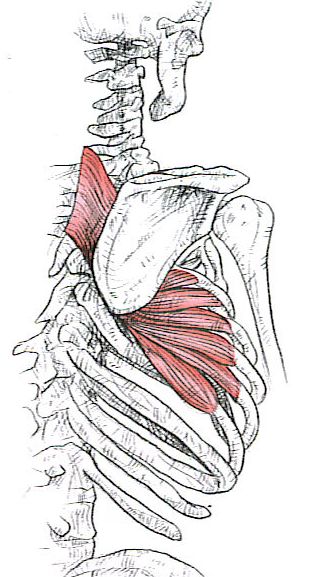The Scapular Plank Pushup
One of the most common frustrations athletes have in the gym is the inability to get their arms overhead comfortably. Whether it’s pullups, a shoulder press, or an overhead squat, supporting weight overhead is an important part of upper body training.
Here’s the catch: oftentimes what seems like a flexibility limitation is actually poor scapular stability limiting overhead range of motion. In other words – arm flexibility is dependent on a well moving shoulder blade.
Scapular Stability
When the shoulder blade (scapula) doesn’t move with the arms in timed coordination, the arms will not be able to execute the 180 degrees of shoulder flexion needed for many exercises.
A key component to overhead range of motion (shoulder flexion) is scapular upward rotation. The 180 degrees of shoulder flexion is 60 degrees of movement from the scapula and 120 degrees from the arms.
Scapular Upward Rotation
Scapular upward rotation is dependent on three muscles in particular: the upper and lower trapezius and the serratus anterior. If you missed the “Upward Rotation Series” you can check out the blog here.
One of the best exercises for the shoulders to improve upward rotation is the scapular plank pushup. This exercise trains the serratus anterior to stabilize the scapula on the ribcage during arm movement.
THE SERRATUS ANTERIOR
Serratus anterior pictured below on the right – rhomboid is pictured on the left. These muscles are actually one continuous muscle – which join under the scapula. Tom Myers, calls this muscle complex the rhombo-serratus muscle. Balance between these muscles is key to good scapular control during overhead positions like the overhead squat and snatch.
While some coaches are familiar with the “Pushup Plus” the scapular plank pushup has some advantages over the pushup plus and should be a regular part of shoulder mobility and stability training.
Dean Somerset nicely explains the key points to this exercise,
“Cueing for this should involve maintaining a tight core, and resisting the urge to round the thoracic spine to compensate for a lack of mobility in the scapulae. On top of being a great shoulder workout, the changing base of stability in the shoulders means the core has to work that much harder to keep it all together. “
- Kevin Kula, “The Flexibility Coach” – Creator of FlexibilityRx™ – www.FlexibilityRx.com



Комментариев нет:
Отправить комментарий